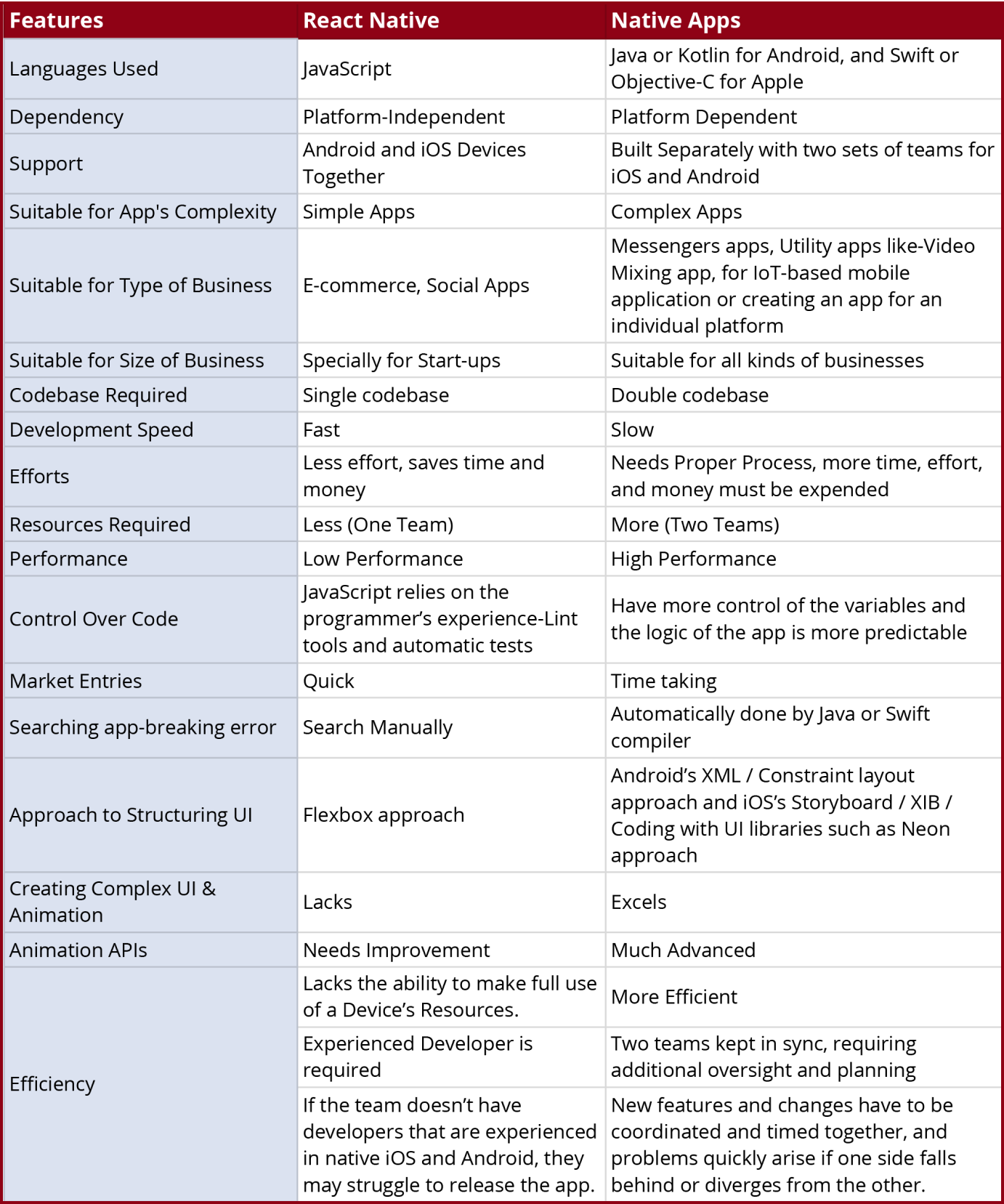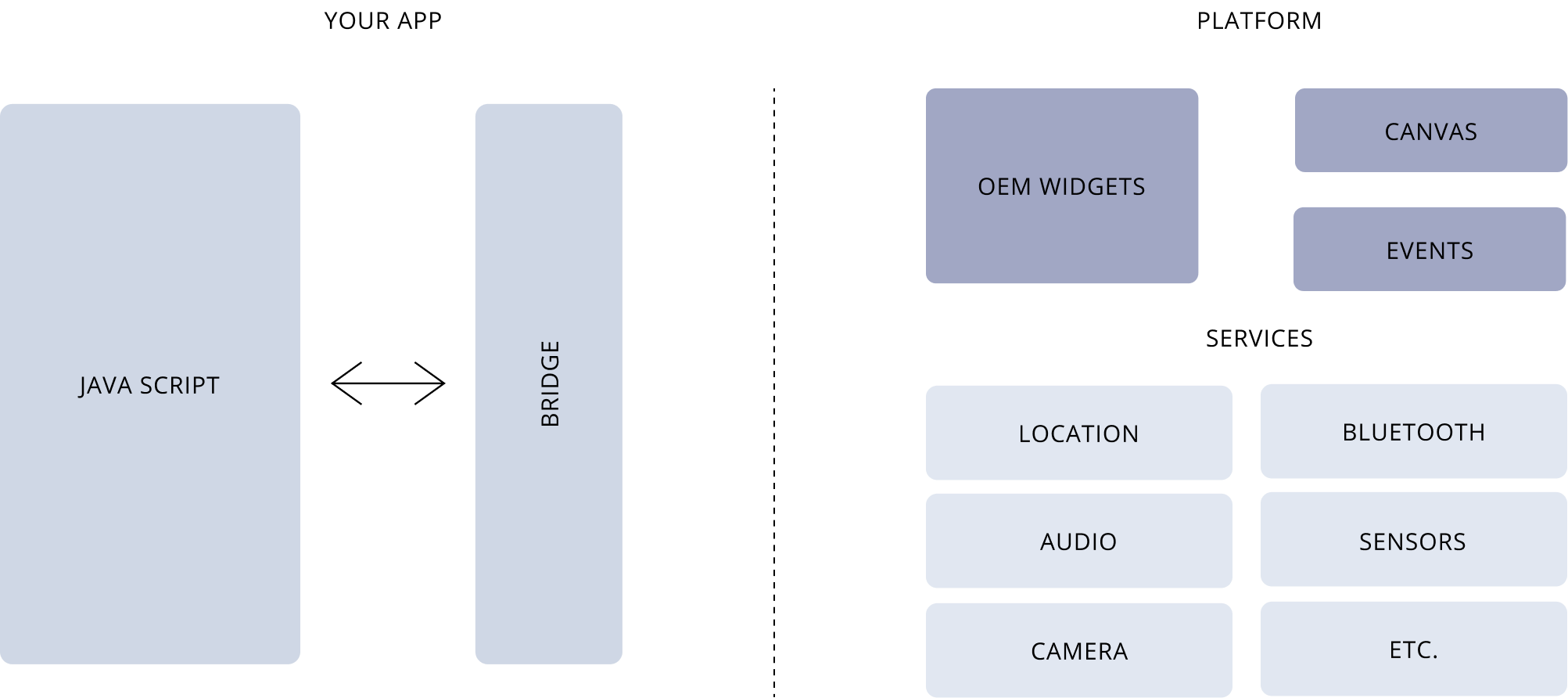When to choose Native App Development?
- If you need to make an app for an individual platform-iOS-only or Android only.
- If you need to make a highly complex app which utilizes a large portion of platform-specific code like, video/image editing, image/video handling,Phone camera, video/audio call, Messenger functionality etc.
- If you have a plan to launch regular updates.
- If you plan to maintain the app for a long period of time.
- If you are more focused on the native user experience.
- If your app needs to support new mobile OS features as soon as they are released.
- If you are building an IoT-based mobile application.


